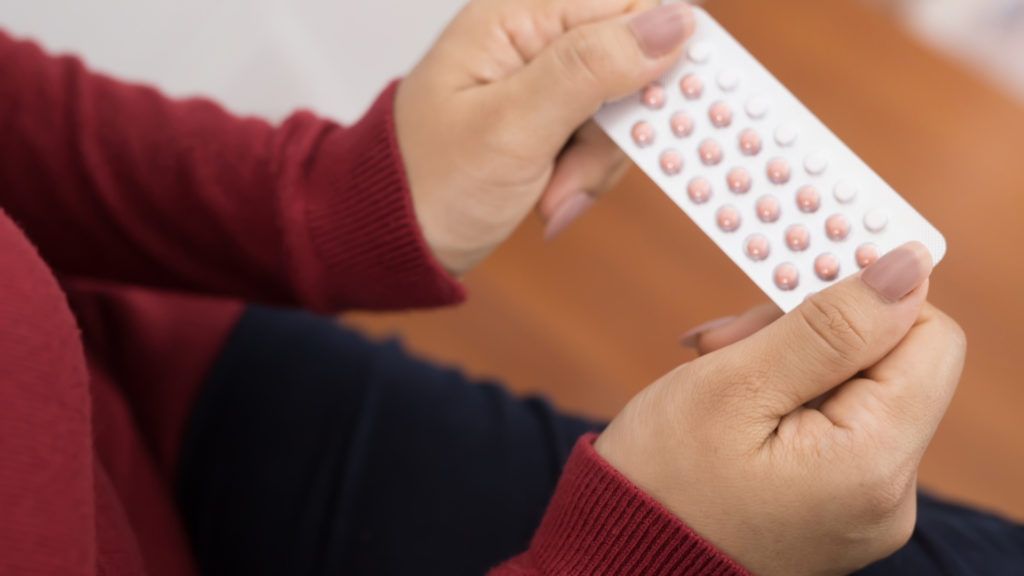Whether you’ve been on birth control pills for just a few months or are a dedicated user of a decade or more, your body will likely need time to adjust once you stop. From wildly fluctuating hormones to a return to whatever your pre-pill menstrual cycle looked like, the symptoms you’ll experience can vary widely.
Keep in mind that once you stop using the pill, you’ll need to use another form of contraception to protect yourself against unplanned pregnancy and that only barrier contraceptives, such as condoms, can protect you from sexually transmitted infections.
Phsyiological Changes
Because birth control pills have a direct effect on your hormones, you might notice some significant hormonal shifts occurring after you stop taking the pills. Post-pill side effects are often similar to those right before a period, and may include cramps, bloating and mood swings – but keep in mind that these can be more intense than your average PMS episode on the pill.
Some women also develop pregnancy-like symptoms, such as nausea and breast tenderness. The intense hormonal shifts might also invoke memories of those tumultuous teen years by bringing back bouts of acne to plague you for a few months until your hormones settle back to normal.
As you experience these phsyiological changes, remember that your body is over-compensating on the hormone front in order to get you back to normal.
Emotional Changes
Ditching the pill can cause an unexpected increase in libido, so be prepared for some changes in your levels of desire. (Your partner won’t be complaining!) A research study published in 2010 in the Journal of Sexual Medicine found that hormonal birth control lowers libido in women, so be aware that halting it might set those hormones free again.
Another study, this time in the October 2013 issue of the American Journal of Epidemiology, found that women on hormonal contraceptives had lower rates of depression, so there could be a risk of developing depressive symptoms after you stop. However, this connection is still under study, so the link isn’t well established yet. If you do notice significant emotional changes after halting birth control use, contact your doctor for advice.
Restarting Your Period
The time in which your body reverts to having periods is completely individual and subjective. Most women resume their periods within four weeks, but some experience a delay of up to several months. If you go more than three months without a period, talk to your doctor. You might have post-pill amenorrhea, a condition in which your body has stopped making the hormones that cause ovulation and menstruation.
Even if you do start your periods right away, they may be irregular for a while, especially if they were irregular before you went on the pill. Some women experience spotting before they have an actual period, and others notice heavier or lighter menstrual bleeding than they previously had. Don’t worry, though: over time, your cycles should settle down into something more familiar.
Weaning Off the Pill
There’s no need to wean yourself off hormonal birth control, and you don’t have to wait until an entire pack of pills is completed to stop taking them. The hormones from oral contraceptives don’t stay in your body after you’ve stopped, so you also don’t have to worry about lingering effects. You should talk to your OB/GYN before you stop, though, since there may be things in your personal medical history that you need to consider before quitting the pill.
Getting Pregnant After Being On the Pill
If you’re planning on halting your use of birth control to try to get pregnant, you may want to take a folate supplement for a few months before you quit. As reported by the National Institutes of Health, oral contraceptives can decrease the amount of folate in your body. Because folate is essential during early embryonic development, you need adequate intake just before and right after conception. If you get pregnant within a few days after quitting the pill, you might not have enough folate to keep you and your baby healthy.
Contact Us Today!
As always, talk to your doctor if you have any questions regarding your personal health and quitting birth control. We’re always here if you need us!

